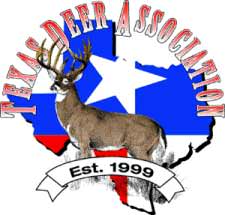Attention Elk Farmers Texas Animal Health Commission Extends Monitored Herd Program
Enrollment Participation Recommended and Encouraged.

AUSTIN, TX –-(Ammoland.com)- The Texas Animal Health Commission (TAHC) implemented a monitored elk herd program on January 1, 2010, to aid in the rapid detection of Chronic Wasting Disease (CWD).
The program in its inception was intended to allow elk producers to continue to move their animals intrastate while working to achieve a monitored “herd status” under TAHC oversight. In an effort to encourage more participation in the surveillance program, the TAHC is now extending the original enrollment process for another year, until January 1, 2012.
“The program is intended to help protect the exotic wildlife and cervid industry of Texas from the possible introduction of CWD, by developing an effective surveillance system”, stated Dr. Dee Ellis, TAHC State Veterinarian.
“Enrollment will allow elk producers to continue to move elk with minimal restrictions, while “status” is achieved in their herd”, Dr. Ellis further added. After the newly extended January 1, 2012 deadline, elk will only be allowed to move after all “herd status” regulations have been met, which will include mandatory testing of recently deceased elk from the herd.
CWD is a transmissible spongiform encephalopathy known to affect elk, moose, white-tailed deer, black-tailed deer and mule deer. It is a fatal, degenerative brain wasting disease. The typical clinical signs of CWD are emaciation, behavioral changes and excessive salivation. CWD is not known to affect people, and has not been detected in Texas to date. Since it was first detected in Colorado in 1967 however, it has subsequently been diagnosed in 13 other states including New Mexico and Oklahoma , and continues to threaten the cervid industry in other parts of the US .
The TAHC enforces interstate movement requirements for elk and other cervids entering Texas . Out of state animals must originate from a herd which has participated for at least five years in a state-approved CWD herd certification program, and with no clinical signs of CWD in the herd. In today’s environment, the mobility and transportation of agricultural animals throughout the state and country has greatly increased the potential exposure to diseases.
Under the direction of the Texas Parks and Wildlife Department (TPWD), all breeders of Texas white-tail deer are required to participate in a CWD Monitoring program through either TPWD or the TAHC.
“Adequate and timely surveillance testing is critical to detect a newly introduced or emerging disease as quickly as possible, so that it can be eliminated before potential spread to other animals”, explained Dr. Andy Schwartz, TAHC State Epidemiologist.
“Fortunately, CWD has not been detected in captive or free-ranging deer or elk in Texas , but elk producers must continue to be mindful of the disease, and take necessary precautions to ensure the safety of exotic livestock. Maintaining surveillance for CWD in Texas is critical for effective animal disease response and future trade opportunities,” Dr. Schwartz added.
By keeping appropriate records and sufficient sampling of animals as required by the program, a herd can achieve a recognized “herd status” for CWD. This status is essential if herd owners intend to sell or move animals out of state, and in-state after January 1, 2012. Under the TAHC’s elk enrollment program, elk would be test- eligible at 16 months of age or older, and tests conducted in a herd would be valid for one year. Animals tested must be euthanized or harvested, allowing for the collection of brain tissues for laboratory examination. Unfortunately, there is no valid live animal test currently accepted for CWD diagnosis.
Participants from major wildlife and cervid associations, stakeholder groups, and affected governmental entities worked closely with the TAHC to develop the current mandatory surveillance program. Participation in the program is strongly recommended and encouraged. Elk owners can enroll their herds in the CWD monitoring program by contacting their local TAHC regional office. For the local TAHC region office contact information, visit www.tahc.state.tx.us or call the TAHC headquarters in Austin at 800-550-8242.
Founded in 1893, the Texas Animal Health Commission works to protect the health of all Texas livestock, including: cattle, swine, poultry, sheep, goats, equine, exotic animals, and poultry.
The TDA is the only non-profit organization solely committed to improving the quality of Texas deer herds through better habitat practices, modern harvest strategies and use of superior deer to enhance the deer herds. We’re proud to bring you news for and about the deer industry.
